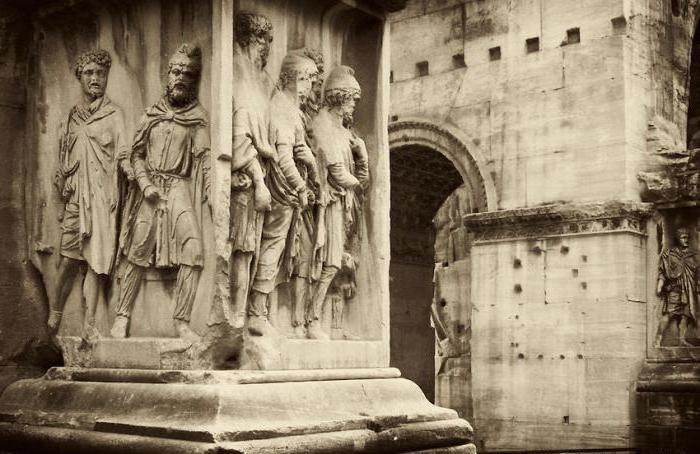The reign of the Roman emperor Septimius Severus was not very long, from 193 to 211, however, the circumstances of his coming to power, an active foreign and domestic policy, as well as the improvement of Rome became the subject of close attention of ancient authors. He founded a new dynasty in the empire and carried out a number of measures aimed at restoring the shaky position of the state, but after his death it nevertheless entered the next phase of the crisis.
Biography
The facts of the life of Septimius Severus are indicative in the sense that they demonstrate how Roman statesmen and generals through the occupation of high posts eventually became emperors, despite the fact that they did not belong to the reigning dynasty. He was born in 146 in the African city of Leptis in a Phoenician family, whose head belonged to the horseman class. From a young age, he counted on a political career, for which he had certain reasons, since there were two consuls among his relatives. He received a good education in his homeland, and then in the capital of the empire, where he moved to carry out his plans.
Participation in politics
The activity of Septimius Severus as a statesman began with the fact that he took the position of a questor. In this post, he proved himself to be a diligent worker, and therefore, bypassing the next administrative level, he immediately received the administration of Betika province. However, the death of his father forced him to return to his homeland, where after a while he became a legate of the Roman proconsul. After some time, the Roman emperor granted him the position of a people's tribune, where he again distinguished himself as a strict, executive worker. The success of Septimius Severus as a steward brought him some fame, so that he began to be entrusted with important and responsible tasks. He held various command posts in Spain, Syria, Gaul. Moreover, during the service in the latter, he gained considerable popularity as a principled and disinterested military leader. To understand his further successes, it is important to note the fact that he enjoyed the love and respect of the troops, which later became the main pillar of the future emperor during his coup.
Rise to power
In 193, when the Roman emperor was killed, the army of Septimius Severus, the photo of the sculptural sculptures of which is presented in this work, stood in the Pannonian region. Then he decided to take advantage of the situation by convincing the soldiers of his army that he wanted to avenge the murder of the ruler, who, in turn, enjoyed considerable popularity among the troops. Since the commander already had a good reputation among the soldiers, they believed him and sided with him.
Then he sent his forces to the capital of the empire. At the same time, two more rulers claimed the throne: Niger in Syria and Albin in Britain. He made an alliance with the latter and opposed the first, defeating him. After that, he defeated the Parthians and annexed Mesopotamia to the empire, which contributed to the growth of Septimius Severus in Rome. Then he proclaimed his son to be the heir, and defeated the second applicant, his former ally, under Lyon in 197. Two years later, he finally defeated the Parthians, consolidating his foreign policy success.
Last years
Shortly before his death, he led a military campaign in the British lands. Here he was also waiting for success: he subjugated the Caledonian people, restored the Hadrian Wall and strengthened power in the region. During the years of his reign, Septimius Severus (emperor) was engaged in active construction. The most famous building during his reign is the Arc de Triomphe at the Roman Forum, built in 203 in honor of his successful Parthian campaign. On it was a quadriga depicting the ruler himself and his sons, which, however, has not survived to this day. The structure has four reliefs depicting the emperor’s victories over cities.

He also paid much attention to the infrastructure of the city. He cared about the well-being of roads, post offices, and carried out a topographic survey of the capital. Since the emperor himself came from the province, he paid much attention to the development of the regions of the empire, especially this concerned his homeland, Africa. He died in 211, during his campaign in Britain, from a damp climate that was extremely harmful to his health.
Summary
The emperor did much to strengthen central authority. Under him, the senate lost its former significance, and the army, on the contrary, strengthened. The ruler increased the salaries of the soldiers and created three legions. He also tried to introduce uniform governance throughout the empire, seeking to equalize the status of the provinces with the capital. He contributed to the increase in the income of the royal treasury due to the fact that henceforth the revenues from the provinces went to the center. In addition to state needs, these funds also went to mass games and folk entertainment.